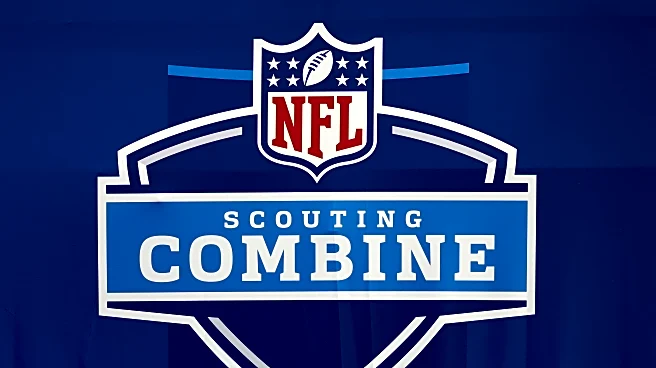What's Happening?
Luke Littler, a prominent darts player, has decided to manage his own career following a split from ZXF Sports Management. This decision comes just before the World Grand Prix, where Littler recently secured a 2-0 victory over Gian van Veen. Littler, who has been with his previous management group since 2020, will now rely on support from his family and Garry Plummer at Target Darts. Despite the split, Littler remains focused on his career, expressing confidence in his ability to perform well in upcoming tournaments. He has not disclosed specific reasons for the separation but indicated it was the right time for a change.
Why It's Important?
Littler's decision to self-manage marks a significant shift in his professional journey, potentially influencing his performance and career trajectory. As a reigning world champion and a key figure in darts, his move could inspire other athletes to consider self-management. This change may also impact his sponsorships and partnerships, as he navigates the logistics of his career independently. The broader darts community will be watching closely to see how this decision affects his performance in major tournaments, including the World Grand Prix.
What's Next?
Littler will continue to compete in the World Grand Prix, with his next match scheduled soon. His performance in this tournament will be closely monitored as it could set the tone for his self-managed career. Additionally, his interactions with sponsors and the darts community may evolve as he takes on more responsibilities. The outcome of his decision to self-manage could influence other players considering similar paths, potentially altering management dynamics within the sport.
Beyond the Headlines
Littler's move to self-management highlights a growing trend among athletes seeking greater control over their careers. This decision raises questions about the role of management groups in sports and whether athletes can successfully balance competitive performance with administrative duties. The long-term implications could include shifts in how athletes negotiate contracts and manage public relations, potentially leading to a more personalized approach to career management in sports.










